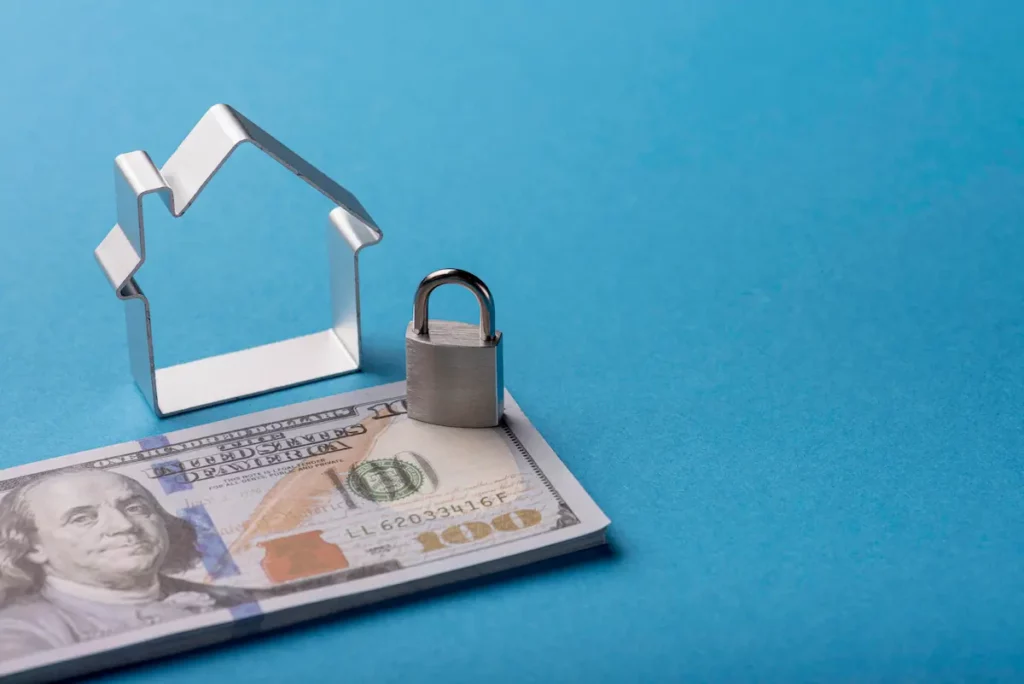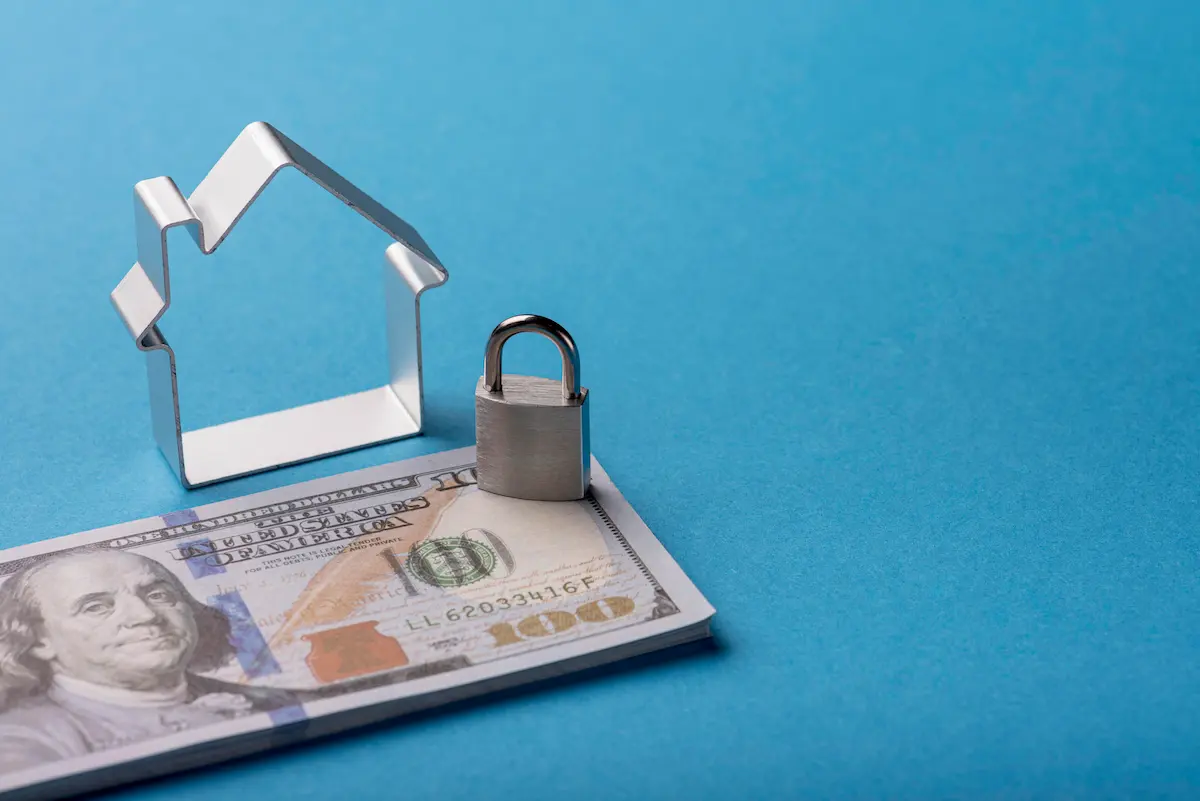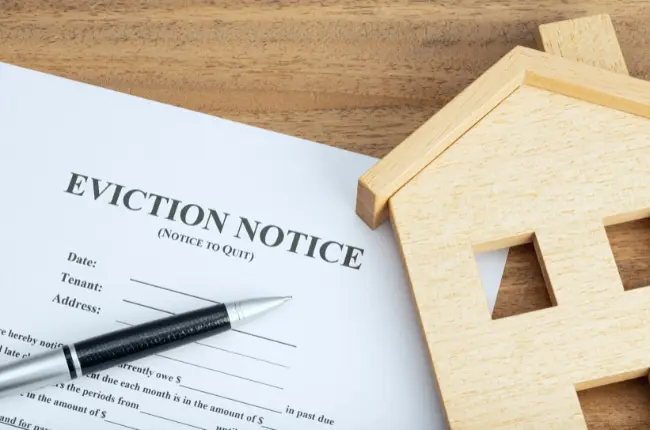How California Assembly Bill 12 Will Affect Landlords in San Diego

California Assembly Bill 12 (AB 12) is a new bill that is set to revolutionize the way security deposits are handled in San Diego. AB 12 caps security deposits at one month’s rent versus the previous two to three months in an attempt to make housing more accessible and affordable in California.
While this might seem like a blow against California property owners, it’s in fact a more nuanced situation with challenges and opportunities for both tenants and landlords. One thing we know for sure at Good Life is that information is power, so understanding this new legislation is going to help you navigate the change effectively so you can stay compliant, and profitable.
Let’s dig into AB 12, so you can understand the pros and cons for tenants and landlords under this new legislation.
Key takeaways
- California Assembly Bill 12 limits security deposits for rental properties to a maximum of one month’s rent.
- Landlords with two or fewer properties, totaling no more than four units, can charge up to two months’ rent as a security deposit.
- AB 12 aims to make it easier for tenants to access housing by lowering the upfront costs.
- Although security deposits are capped, landlords can still seek additional damages from tenants if the cost of property damage exceeds the deposit.
Table of Contents
What is California Assembly Bill 12?
California Assembly Bill 12 (AB 12) is a new piece of legislation that came into effect on July 1st, 2024. Under this new law, security deposits for residential rental properties cannot exceed one month’s rent.
Over the course of our 15+ years in property management, the majority of landlords choose to charge one month’s rent as a security deposit. AB 12 sets out to curtail the practice of charging security deposits equivalent to two or three months of rent. While we at Good Life Property Management didn’t see security deposits being abused in this way, it’s now officially state law in California that you cannot charge more than one month’s rent for a security deposit.
The aim of this bill is to make it easier for tenants to access housing and to lower the barrier for entry into the rental market. But it also includes provisions that protect landlords. For example, landlords are still able to seek damages from tenants for damage done to their property that surpasses the security deposit. So, landlords can feel confident that they can still maintain their properties even if the security deposit doesn’t cover the cost of potential damages.
Why Did California Need AB 12?
Some might argue that California didn’t need AB 12. But, seeing as how the bill was passed, a lot of people felt it was necessary. So, what?
California’s housing and rental prices have been on a steady increase for many years. The average rental cost in California is 38% higher than the national average. When you look at the bigger city centers, the gap is even wider. In San Diego, the average rent is $3,012 compared to the national average of $2,000.
And while most California renters are able to cover the cost of their monthly rent, having to pay two or three times that amount as a security deposit can be difficult to swing. According to a CBS news report from 2023, 53% of renters felt that security deposits were contributing to their inability to find adequate housing.
And no wonder—using the state-wide average of $2762 (which is noticeably lower than the larger cities), security deposits could have been anywhere from $5,524 to $8,286. In San Diego, that number is even higher, sitting at $6,024 to $9,036.
With no sign in sight that the market will be slowing down any time soon, lawmakers felt the need to create legislation to lower the barriers of entry for California residents.
Key Provisions of AB 12
There are some key provisions of Assembly Bill 12 that landlords should be aware of as they sign leases with new tenants.
Limitation on Security Deposits
As we mentioned before, AB 12 was introduced to address the housing crisis in California by introducing strict limitations on security deposits. Under this new bill, landlords cannot charge more than one month’s rent as a security deposit.
This legislation is a response to landlords who have capitalized on the previous regulations surrounding security deposits by charging two or three times the monthly rent as a deposit. These excessively high security deposits are prohibitive to many prospective tenants—while they may be able to afford the monthly rent, they cannot afford the initial deposit.
By signing AB 12 into legislation, the state is hoping to reduce the unbalanced financial burden that was being placed squarely on the shoulders of the tenants and create a more equal, fair housing market in California.
Exemptions and Special Provisions
Assembly Bill 12 aims to standardize the rules surrounding security deposits, it also takes into account that there are some property owners whose position is slightly different. That’s why there is an exemption for small landlords who own two or less properties, as long as the total units between the properties does not exceed four.
This provision allows for smaller landlords to charge up to two month’s rent as a security deposit in an attempt to decrease the potential financial strain on landlords who are operating on a much smaller scale than some of the larger-scale property owners.
How Does AB 12 Impact Landlords and Tenants?
When we first read AB 12, it was clear to us how this legislation would positively impact tenants. They’ll be required to pay less upfront costs to be able to rent a property. But AB 12 has been touted as a bill that also considers the interests of landlords. And it’s true, the legislation does attempt to focus on the need for affordable housing while safeguarding landlords against potential liabilities.
One way it accomplishes this is by recognizing that damages can occur that exceed the amount of a single month’s rent. Therefore, the legislation ensures that landlords are able to seek damages from tenants if they surpass the security deposit amount. This provision means that tenants can be protected from exorbitant upfront costs, but landlords will not be left vulnerable to potential losses from damage to their property.
Another positive consequence of Assembly Bill 12 is that landlords may find that they have more applicants to their vacancies. As mentioned before, most California renters had no issues dealing with monthly rent, but the high upfront cost of security deposits kept them from applying to rentals. Landlords may find that more qualified individuals apply when they’re looking for new tenants.
While AB 12 aims to standardize the security deposit process and alleviate the potential financial burdens for tenants, there have been some unintended consequences that negatively impact renters.
The limit on security deposit has forced many housing providers to eliminate their conditional approval programs. Conditional approval programs allow for slightly higher deposits for applicants that have been identified as posing a marginal credit risk. Because of AB 12, tenants with lower credit or income will have a more challenging time getting approved for housing because of the elimination of conditional approval programs.
AB 12 presents a mixed bag of challenges and opportunities for landlords in California. By understanding the pros and cons, landlords can ensure they remain compliant while safeguarding their investment.
Practical Considerations for Landlords Under AB 12
We’ve had clients asking if they have to change how they operate to comply with AB 12. And while the obvious answer is that they must cap their security deposits at one month, there are some other practical considerations to keep in mind as you operate under Assembly Bill 12.
Compliance
The first thing all landlords must do is ensure they are complying with Assembly Bill 12—all security deposits issued after July 1, 2024 should be capped at one month’s rent unless the landlord has two or less rental properties totaling no more than four units.
Charging more than one month’s rent can be a costly mistake that will lead to legal action.
Impact on Lease Agreements
If you have a standardized lease agreement, it’s time to update it. You must clearly outline in your lease the new security deposit amount and also include verbiage about the tenant’s responsibility to cover any additional costs due to property damage beyond the security deposit. While the law would be on your side, it’s always wise to outline all potential outcomes in the lease agreement to protect yourself and ensure your tenant is fully informed of all their obligations before signing.
Financial Implications
Before AB 12, landlords could collect security deposits of up to two months’ rent for unfurnished and three months’ rent for furnished units. This larger upfront deposit helped landlords cover potential damage, unpaid rent, or cleaning costs at the end of a tenancy. With the one-month limit, landlords will have less cash up front. And while they will be able to seek damages from tenants, the lack of cash could cause liquidity issues if a landlord is required to pay for repairs out of pocket.
In the same vein, if a tenant damages the property or doesn’t pay rent, landlords are left with a smaller deposit to cover those costs. For example, if rent is $3,000 per month, a landlord will only have $3,000 to cover costs—but if a tenant fails to pay their last month’s rent and damages the property, the landlord will be stuck footing the bill until they can recoup the costs.
Hiring a Property Management Company in California
Looking to have someone else handle the day-to-day operations of your rental property and stay up-to-date with all the new legislation? We can help.
At Good Life Property Management, we believe that life should be enjoyed, not spent sweating the small stuff. That’s why we set out on a mission to make property management easy. We care about you, your property, and your tenant. And we do it all, so you can Live the Good Life.
Schedule a call to speak with one of our Good Life experts.
California Assembly Bill 12 FAQs
What is the AB 12 law in California?
Assembly Bill 12 (AB 12) is a California law designed to create a more fair housing market by capping security deposits to a maximum of one month’s rent with some exceptions for smaller landlords.
What is the AB 12 exemption in California?
California Assembly Bill 12’s exemption states that landlords with two or less properties with a total of four or less units can charge a maximum of two months’ rent as a security deposit.
What is the new law for rental deposits in California?
The maximum security deposit for rental units in California is one month’s rent unless you meet the exemption requirements. If you meet the requirements for exemption, you can charge up to two month’s rent.
Who is eligible for AB 12 in California?
All landlords with over two properties totaling more than four units are required to abide by California Assembly Bill 12.
What is the maximum security deposit in California?
Under AB 12, security deposits in California cannot total more than one month’s rent as of July 1, 2024.
Steve Welty
Subscribe to our Weekly Newsletter
Join the 5k+ homeowners receiving Local Law Updates and Landlord Tips. Delivered to your inbox every Saturday at 6am PST.
Share this:
Get in touch with us:
We make owning rental property easy.
Choose Your Next Step
Good Life Blogs
We believe that education is empowering.

How California Assembly Bill 12 Will Affect Landlords in San Diego
California Assembly Bill 12 (AB 12) is a new bill that is set to revolutionize the way security deposits are handled in San Diego.

The California Eviction Process: Cost & Steps UPDATED 2025
The eviction process in California can be lengthy and costly. We review all of the steps involved in the process and what it might cost you as a landlord.

What to Consider Before Raising the Rent During COVID-19
These are some things to consider before raising the rent on your tenants during COVID-19.






